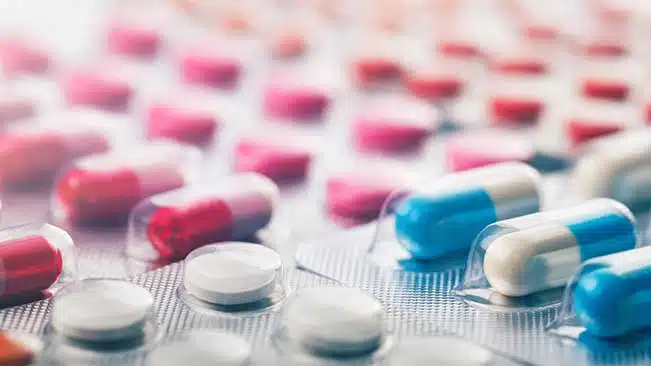Concerta Vs. Adderall | What’s The Difference?
- Differences Between Concerta & Adderall
- How Concerta & Adderall Are Similar
- Use In Children & Adolescents
- Side Effects Of Concerta & Adderall
- Mixing Concerta Or Adderall With Other Drugs
- Stimulant Drug Abuse

The main difference between Adderall and Concerta is the active ingredient. Concerta contains methylphenidate while Adderall and Adderall XR is a combination of amphetamine and dextroamphetamine.
Both brand name drugs are prescription stimulant drugs that are also Schedule II controlled substances.
Schedule II substances are considered to have a high potential for abuse and, when used, can lead to physical or psychological dependence. Despite the similarities between Adderall and Concerta, these stimulants have a few differences.
Differences Between Concerta & Adderall
While Concerta and Adderall are used to help treat attention deficit hyperactivity disorder (ADHD) and narcolepsy, there are differences between the two drugs.
For instance, Adderall contains two active ingredients (amphetamine and dextroamphetamine) while Concerta has a single ingredient (methylphenidate).
Onset Of Effects
Adderall and Concerta come as immediate release and extended-release tablets. However, the formulation of Concerta provides an extended-release form. Because the drug is released slowly, it is considered to be long-lasting.
This means, unlike Adderall, that Concerta is released for a longer period of time. Since Adderall and Concerta are central nervous system (CNS) prescription stimulant drugs, they can interfere with the neurotransmitters norepinephrine or dopamine in the brain.
For Use In Adolescents
A study reported that the active ingredient of Concerta, methylphenidate, was more beneficial than other stimulant drugs for children and adolescents suffering from ADHD.
Seek the medical advice of your healthcare provider to determine which of these stimulant drugs can assist you or your loved one struggling with symptoms of narcolepsy or ADHD, as some drug interactions and adverse effects can occur.
Similarities Between Concerta & Adderall
Some of the similarities between the prescription drugs Concerta and Adderall are medical uses, side effects, and drug interactions.
Medical Use
Concerta and Adderall are prescription medications that are FDA-approved for treating symptoms of ADHD. Both medications treat symptoms of ADHD such as impulsivity and inattention.
In addition to the treatment of ADHD, the medications can be used to help treat narcolepsy. Narcolepsy is a sleeping disorder which can cause a person to experience excessive sleepiness, even during the daytime.
Side Effects
Common side effects of Concerta and Adderall may include:
- dry mouth
- nausea
- headache
- weight loss
- nervousness
- constipation
- dizziness
Other side effects of Adderall and Concerta may consist of painful erections in men, menstrual problems in women, and withdrawal symptoms which can cause health problems such as irritability, cravings for the drug, and depression.
Drug Interactions
Adderall and Concerta may create a number of adverse effects, including drug interactions when they’re mixed with other substances.
Those taking either of these stimulants should avoid:
- other stimulants such as lisdexamfetamine (Vyvanse) and atomoxetine (Strattera)
- non-stimulant medications such as norepinephrine reu-ptake inhibitors (NRI)
- certain antidepressants such as monoamine oxidase inhibitors (MAOIs)
- antihistamines
- opioids
- muscle relaxants
In addition to refraining from combining these medications, there are a number of adverse effects which can occur in those who:
- have a history of Tourette’s Syndrome or tics in their family
- suffer from mental health problems such as bipolar disorder
- have glaucoma or blurred vision
- become pregnant
- have a family history of heart problems
Stimulant Drug Abuse
Those who abuse these stimulant medications may feel similar effects. These stimulants can be abused orally or can be snorted and injected. Serious side effects can occur in those who participate in these forms of drug abuse.
Some of the side effects a person may experience when they abuse these stimulants include:
- high blood pressure
- fluctuations in heart rate
- severe weight loss
- withdrawal symptoms
- mood changes
- psychosis
Snorting these meds can lead to nasal cavity damage and injecting either drug can cause collapsed veins, bacterial infections, and abscesses on the skin.
If you or a loved one live with prescription stimulant drug addiction, our treatment options include inpatient/outpatient care, behavioral therapy, peer support groups, and aftercare. For more information, please contact us today.
Written by Ark Behavioral Health Editorial Team
©2024 Ark National Holdings, LLC. | All Rights Reserved.
This page does not provide medical advice.
Food and Drug Administration - Adderall
Food and Drug Administration - https://www.accessdata.fda.gov/drugsatfda_docs/label/2007/021121s014lbl.pdf
The Lancet Psychiatry - Comparative efficacy and tolerability of medications for attention-deficit hyperactivity disorder in children, adolescents, and adults: a systematic review and network meta-analysis
National Institute on Drug Abuse - Stimulant ADHD Medications
National Library of Medicine: MedlinePlus - Amphetamine and Dextroamphetamine
National Library of Medicine: MedlinePlus - Methylphenidate

Questions About Treatment?
Ark Behavioral Health offers 100% confidential substance abuse assessment and treatment placement tailored to your individual needs. Achieve long-term recovery.
100% confidential. We respect your privacy.
Prefer Texting?
Our friendly support team is here to chat 24/7. Opt out any time.







 Learn More
Learn More








